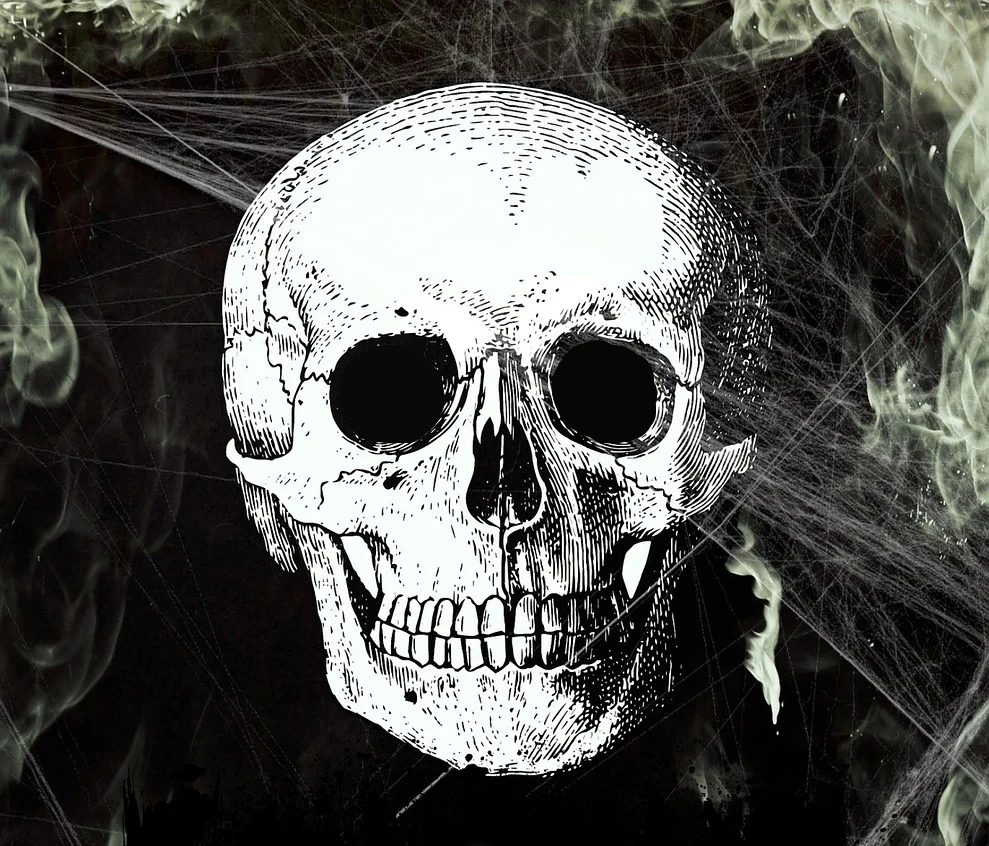On the illusory nature of death

Is death ceasing to exist or is death simply an illusion? And when I say illusion I do not mean that it is not real or that it is less real, as that could be a misinterpretation. When I say illusion I mean that it appears to be something it is not. For example, it may appear to be the end of our existence but it may be something else. Just like those images that appear to be moving but are actually static. Optical illusion, I mean. It's not that the image isn't real, just that it's misleading.
Can we cease to exist?
The Eleatic philosopher Parmenides is credited with the assertion that nothingness does not exist. Nothingness is then equated with nonexistence. Now, this may seem like a truism that everyone knows which is simply synthesized as “non-existence does not exist” or as “what is not, is not”, but it has deeper implications and consequences we often fail to take into consideration. We often speak and act on the premise that “nothing” is “something,” and non-existence exists. Proof of that is that sometimes we believe that things can begin to exist (being first nothing, and then something) and other times we believe that things can cease to exist (become nothing). But, is this possible?
For Parmenides, the answer would be a clear no. Things cannot begin to exist from nothing (for nothing comes from nothing) nor can they become nothing. You can become big, for “bigness” is something that exists. You can become brave, wise, strong, tall, etc., because these are all things that exist. But you cannot become “nothing,” because “nothing” does not exist, and therefore, it is not a thing that you can become. That is, you cannot cease to exist.
If we admit that non-existence does not exist, things can neither begin to exist by being non-existent before nor cease to exist by passing into non-existence. It is not possible not to exist. In fact, there cannot be something that does not exist, for if one does not first exist, one cannot be something. The only thing that does not exist is nothingness, for nothingness is not.
I think it can be best explained with a simile. Imagine that everything that exists is a swimming pool. Everything that exists is inside the pool, outside there is nothing, nothing exists outside the pool. Inside the pool, there may be things, such as fish, people, etc. Outside the pool there is no such thing, nor can there be things. So, nothing can enter the pool from outside, because there is no “outside” of the pool. Nor is there anything outside the pool to enter. In the same way, there is nothing that can go out of the pool to the outside, because there is no such outside.
The pool is existence. The exterior is nonexistence. To believe that you can take things out of or put things into the pool is to believe that non-existence is another way of existing, that non-existence is yet another pool surrounding the first, and that “nothingness” is “something”. Since non-existence does not exist, we cannot pass from non-existence to existence (generation), nor from existence to non-existence (corruption). We can only pass from existing in one way to existing in another.
Moreover, what we call “nothing” is in itself only an appearance, for we never perceive it. We say that a glass has nothing in it, for example, not when it is really empty, but when it appears to have no contents. That is, the glass can be completely filled with air, and we call that air “nothing”. Nothingness is then an appearance. We cannot perceive “nothingness”, we can only not perceive.

If we see a tree that was cut down to make paper, the “tree” did not cease to exist, since all its components continue to exist, but rather the tree changed and became something else. In this case, paper. In the same way that before being a tree it was something different like a seed, or different pre-existing elements. It is not that the tree came out of nothing or became nothing. Everything that formed the tree still exists, only now it is in another stage of its existence. “Seed”, “tree”, ‘paper’, “wood”, all these are different appearances it takes on during its existence, but its essence remains unchanged and existent.
It is like a sandbox where we can build first, a castle, then a human, and then anything else. In the end, it is the same sand, different appearances, like masks in a theater, but the same essence.
Death.
Death can perhaps be a bit like that, people do not simply cease to exist but pass from one mode of existence to another. Perhaps our little experience as humans ends to make room for another. Another kind of existence completely different from ours.
It's like, the universe just played with us for a while and now it's calling us to be part of it again. If you believe that you are only the body, no problem, it will continue to exist in its complete integrity, and just as we pass from life to death, we must remember that we also passed at some point from a previous state to life itself at birth. What keeps us from possibly returning again at some point?
If we see the body inert, it does not necessarily mean that life has ceased to exist. Everything we are, even our essence - that which makes us who we are - will remain (according to the logic we have used).
If you believe in souls this opens the doors for life after death and even reincarnation, since the soul would exist, despite the dissolution of the body, as one of its composing elements.
We will continue to exist, but do we identify with that which will remain? Or are we too attached to what we think we are right now that we cannot? The very fact that we do not identify ourselves with the corpse, says that we may not believe we are only the body. Maybe it's just a grand illusion. Death. Maybe we are somehow immortal and the only thing that dies is what we think we are. Not us, but what we identify with.
But at the end of the day, death is and remains a mystery that perhaps we can only fully understand when we experience it. Whether it is the end of this, the beginning of that, or the uninterrupted continuation of the same process. I believe that death is something we have to live. Until then, it remains uncertain.